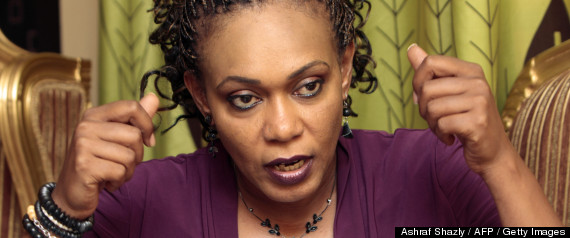Sudan: Woman refuses to wear hijab, faces flogging
Amira Osman Hamed, a Sudanese woman, will be tried on Sept. 19 for refusing to cover her hair with a hijab, a headscarf worn by Muslim women. If convicted, the 35-year-old could be punished by flogging, according to the Agence France-Presse.
After being detained by police for refusing to wear a hijab on Aug. 27, she says she is willing to face the flogging in order to protest the law that requires her to cover her hair.
This isn't the first time Hamed's dress has provoked the ire of Sudanese authorities. In 2002, she was arrested for wearing trousers. Thanks to the help of a lawyer, she was charged only with a fine in that case.
Both of Hamed's supposed crimes have been in violation of Article 152 of the Sudanese Penal Code of 1991, which states, "Whoever does in a public place an indecent act or an act contrary to public morals or wears an obscene outfit or contrary to public morals or causing an annoyance to public feelings shall be punished with flogging which may not exceed 40 lashes or with fine or with both."
"They want us to be like Taliban women," Hamed said in an interview with the AFP, describing the restrictive nature of the law.
She's not the only one to deem the law vastly unfair. According to Tawanda Hondora, deputy director of Amnesty International’s Africa program, "Women are routinely arrested, detained, tried and then, on conviction, flogged simply because a police officer disapproves of their clothing" under the enforcement of Article 152.
In 2009, Amnesty International publicly called on the Sudanese government to repeal the ordinance. The group's statement was made amid the trial of journalist Lubna Ahmed al-Hussein, who was convicted for wearing trousers in public, according to Al-Jazeera news. She was released when the Sudanese Journalist Union paid her $200 fine. Afterward she said, "I am not happy. I told all my friends and family not to pay the fine." Like Hamed, al-Hussein had wanted to face the full punishment to protest the ordinance.
These cases are symptomatic of Sudan's harsh legal system, which is governed partially by Islamic Sharia law, allowing for brutally painful punishments that are only sporadically put into practice. According to a Guardian article from 2012, this system "allows the government to apply punishment harshly (but inconsistently) whenever it feels the need." Internationally, Sudan's use of punishment by flogging is banned by the Organization of African Unity's Charter on Human Rights, which prevents "cruel, inhuman or degrading punishment."

Abdullah Antepli, a Muslim chaplain at Duke University and a blogger for The Huffington Post, said he considers Hamed's criminal charges and potential punishment to be a "primitive implementation" of Sharia law which is not in line with the spirit of Islam. He also notes that Article 152 is not commonly implemented and that many Sudanese women do not even wear a hijab.
Antepli also said he finds Mira's case to be characteristic less of Sharia law than of a Sudanese autocratic society, where "law is only applied to the poor and most vulnerable." He believes that Mira's criminal charges have "little to do with religious interpretation and a lot more to do with lack of civil liberties in society," and he considers it a "gross violation of human rights and disrespect of human dignity" to force women to wear a hijab. That said, he is hopeful that Mira's case will bring about broader conversation about these sorts of laws, which he does not believe reflect the Quranic spirit that teaches "no coercion in religion."


